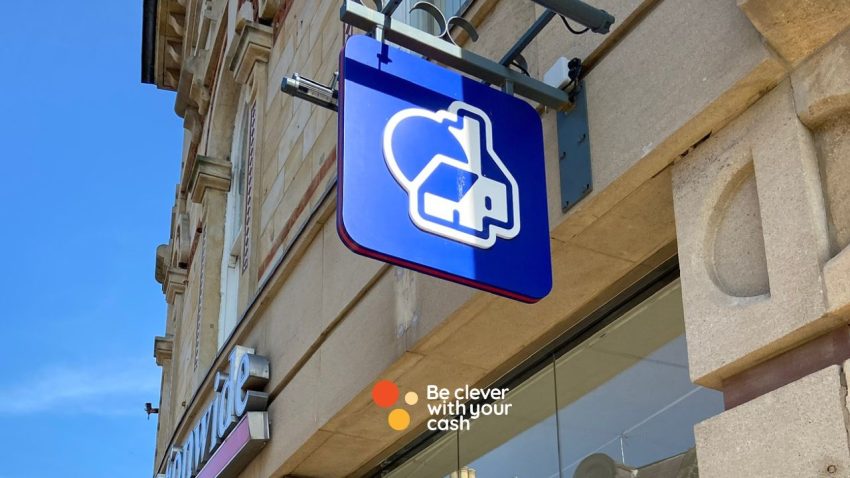Here’s how taking a break from mortgage payments could impact your finances.
For most people, mortgage payments are their biggest expense every month. If something unexpected happens like a job loss or relationship break down and it’s likely to impact their income, taking a mortgage payment holiday is an option to alleviate the pressure.
But are they really a good thing? Here’s what you need to know about how mortgage payment holidays work, who’s eligible and the risks involved.

Some articles on the site contain affiliate links, which provide a small commission to help fund our work. However, they won’t affect the price you pay or our editorial independence. Read more here.
What is a mortgage payment holiday?
A mortgage payment holiday is a temporary break from making monthly payments. They’re typically used during times where finances are under strain, but mostly for a temporary reason like a break in-between jobs or having a baby.
Lenders can agree to a pause in mortgage payments for a specified amount of time, usually from one to 12 months.
What can they be used for?
Mortgage payment holidays can be helpful if you’re facing short-term financial difficulty in situations like:
- A temporary reduction in income – if you’ve lost your job or you’re on maternity / paternity leave.
- Medical issues – if you can’t work or have to reduce hours temporarily while you’re recuperating.
- Emergencies – if something unexpected happens with your property or car that’s going to cost a lot to put right.
They’re just a few of the most common reasons but lenders set their own rules for what can and can’t be supported by a payment holiday. Check with them if you’re not sure your situation is eligible.
When shouldn’t you get one?
Payment holidays should only be used if you’re struggling financially but it’s a temporary situation. If your income has reduced permanently or you can’t afford an increase in monthly payments, a payment holiday isn’t going to help in the long-run.
Saying that though, if you’ve decided to downsize so you can get a smaller mortgage, some lenders may agree that a short payment holiday could be an appropriate course of action while you’re looking for a buyer.
Our podcast
Listen to Cash Chats, our award-winning podcast, presented by Editor-at-Large Andy Webb and Deputy Editor Amelia Murray.
Episodes every Thursday.

What are the downsides?
Mortgage payment holidays can give you some breathing room if you’re going through a difficult time, but they do have downsides that you’ll need to bear in mind.
Your overall debt will increase
The interest you’d have paid accumulates over the term of the payment holiday and gets added to your outstanding loan. You then pay even more interest on the new higher balance for the rest of the mortgage.
So let’s say you had a £200,000 mortgage with 20 years left on the term and an average interest rate of 5%. Taking a 12-month payment holiday would push the total amount you repay up by over £8,000.
Your payments will increase
A higher mortgage balance means your recalculated mortgage payments at the end of the payment holiday will also increase.
Taking a 12-month payment holiday on a £200,000 mortgage could push your payments up by as much as £96 per month if your interest rate averaged at 5%.
If the new recalculated payments are too high for your budget, you could extend the term. But this means that it will take longer to pay off your mortgage and you’ll pay even more interest.
Who’s eligible to take a payment holiday?
Lenders set their own eligibility requirements for payment holidays but they could include:
- A good track record of making mortgage payments
- Not having recently taken a mortgage payment holiday
- You haven’t extended your mortgage term recently
- Your mortgage payments aren’t being paid by the Department of Work and Pensions
- You’re not letting your property
- You’re not on a shared ownership scheme
- Your loan to value (the amount you owe compared to the value of the property) isn’t over a certain percentage
Do they affect your credit score?
A mortgage payment holiday is likely to show up on your credit report which means it can impact your credit score and your ability to borrow in the future. Your lender should be able to tell you how they report it, so if you’re in any doubt, check with them before you put your application through.
It’s worth noting here though that if you took a payment holiday during the pandemic (between 17 March 2020 and 31 July 2021), this won’t appear on your credit report.
Get the best of our money saving content every week, straight to your inbox
Plus, new Quidco customers get a high paying £18 welcome offer

What are the alternatives?
If you’re not sure about taking a payment holiday, here are some other routes I’ve taken in the past to ease pressure on my budget:
Using overpayment reserves: If you’ve overpaid on your mortgage in the past, some lenders will let you use that buffer to cover your monthly payments until it’s all used up. I had around £5,000 in overpayments and my monthly payment was roughly £500 at the time, so it covered me for 10 months whilst I was on maternity leave. This could still impact your credit report though, so check how your lender reports it on your credit file.
Remortgaging: If you don’t need a complete break from payments, but could do with reducing the payments, switching to a new lender with a better interest rate is an option. Just make sure you check any fees and early repayment charges with your current lender to see if it’s worth switching.
Rework your budget: As a former queen of subscriptions that I forgot about or no longer needed, spending a couple of hours analysing my budget to see where I could make cuts made a huge difference. I’m ashamed and proud in equal measures that I was able to shave £250 off my monthly expenditure by doing this, which more than made up for the temporary income reduction I was facing at that time.
Extend your term: This isn’t something I’m a huge fan of as it increases the time you’ll be paying your mortgage for and means you’ll pay more interest. Extending the term of a £200,000 mortgage by five years with an average interest rate of 5% would mean you’ll have to pay roughly £50,000 extra interest.
But that said, I have taken this route myself to help during a tricky time. Once I was through it, I reduced the term back to where it was before so I could still pay my mortgage off by the original end date.
How do they work?
Taking a mortgage payment holiday doesn’t write off any of your debt or stop interest accruing on the outstanding loan. Here’s how they typically work (the specifics vary across lenders):
- Application
You’ll need to apply to your lender. They’ll ask you to give full details about why you need a payment holiday and may ask for documentation to support your application.
- Approval
If your lender approves the application, they’ll confirm the terms in writing, including the length of time they’ve agreed to and the start date of the payment holiday.
- Interest accrual
When I took my first payment holiday years back, I didn’t realise that interest would be still charged. But it keeps on accruing whether you take a break for one month or 12. This means the total amount you owe on your mortgage will increase. All the interest you haven’t paid throughout the payment holiday is added on to your mortgage loan.
- Payment adjustment
When the holiday has come to an end, your lender will recalculate the monthly payments to factor in the new, higher mortgage balance. If you have a particularly high mortgage loan and the new monthly payments will squeeze your budget, speak to your lender. They may have other options to help you including extending the term to bring the payments back down.
So, are payment holidays a good thing?

Katy’s analysis
Payment holidays can be a good thing, but only in the right circumstances.
Payment holidays have helped me get through some particularly difficult times and definitely eased the pressure, but these were only temporary situations.
If you know that the situation you’re in has an end date, payment holidays will give you some time to get back on track with the full support and agreement of your lender.
But if you’re facing long-term financial difficulties, a payment holiday will only give you temporary respite from a much bigger problem down the line. Your overall debt will increase, your payments or term will increase so your mortgage and ability to borrow could be impacted for years to come.
In my experience working in the mortgage industry and from going through unexpected life events as a mortgage-holder, I can honestly say that lenders genuinely want to help. So, if making payments is a strain, speak to them as soon as possible and ask about all your options. You can also get free debt advice from Citizens Advice or StepChange.




